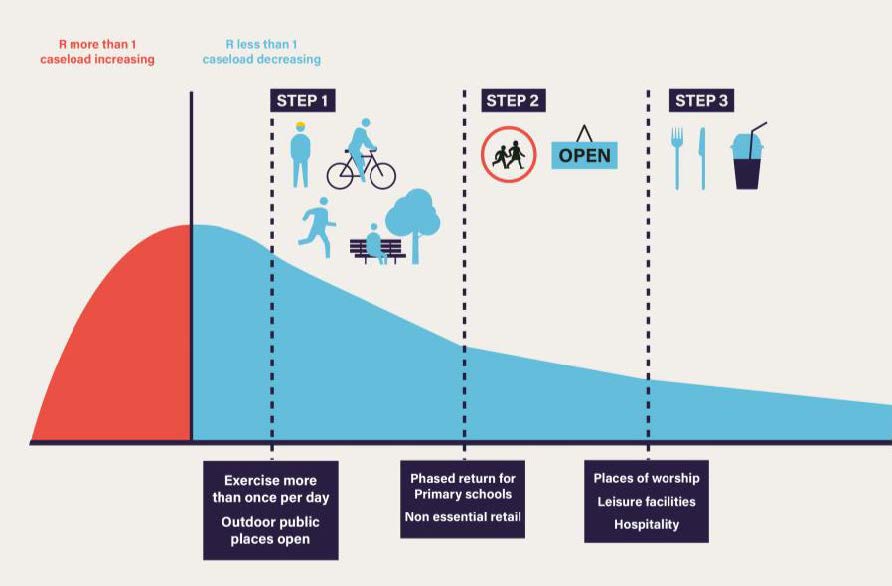This post will give you an overview of the latest communications advice from Visit Britain and other trade organisations, and looks ahead to the next phase as businesses and travel begin to open back up.
Customer concerns will shift as we move through the steps towards normality, and marketing and communication messages should shift accordingly. We have included practical ideas on structuring a staged communications plan, and the messages which could be deployed at each step.
Importantly, the messages in this post are not only intended for your obvious target audiences (i.e. people booking holidays in Cornwall), but also for the local community. As discussed at the end of this post, local people are likely to have a mixed reaction to welcoming holidaymakers, and we should be sympathetic to this fact.
Visit Britain splits its communications recommendations into three stages:
1 – Crisis phase
2 – Early recovery
3 – Recovery
Currently, the Visit Britain guidelines only cover the current stage – crisis phase. Here we are looking ahead to early recovery.
On 11 May the Government announced that hotels, B&Bs, and, although not explicitly mentioned, self-catering businesses, should remain closed.
Further details can be found in the COVID-19 recovery strategy. This confirms that hospitality businesses should remain closed until step three, which will be no earlier than 4 July.

Health Secretary Matt Hancock was quoted in The Telegraph on 12 May, saying:
“…it is clear that we will seek to reopen hospitality, some hospitality, from early July if we keep successfully reducing the spread of this virus.
“But social distancing of some kind is going to continue. The conclusion from that is it is unlikely that big, lavish international holidays are going to be possible for this summer. I just think that’s a reality of life.”
It is realistic, therefore, to expect increased interest in UK holidays from those who would normally travel abroad.
With organisations such as The Country Land and Business Association suggesting rural self-catering businesses should be able to open first (owing to open space and social distancing abilities) (The Telegraph, 12 May 2020), there is a chance that the increased demand for UK holidays could be funneled into predominantly self-catering businesses.
Visit Britain currently outlines the key customer concerns as:
As we move towards early recovery, we would also add:
With the focus being on minimising the cancellation rate beyond 4 July, marketing should look to alleviate the customer concerns outlined above.
It is clearly important to not jump the gun and straight away start encouraging travel to Cornwall from the 4 July. It may be useful instead to openly communicate the steps you will take as we move through the crisis, into early recovery, and beyond. For example:
Now:
Address concerns about cleanliness:
Address concerns about social distancing:
Set expectations:
Sell Cornwall:
In a time when accurate and specific information is hard to find, any communication with customers and potential customers should be relevant and factual.
Customers with bookings beyond July should be contacted regularly to ensure they don’t feel compelled to cancel their trip, while potential customers need to be kept in the loop about the steps that will be taken once it is safe to gradually reopen.
In its latest guidance, the Professional Association of Self-Caterers makes an interesting point about Ts&Cs:
So, if you are able to build some flexibility into the booking terms, this could form an important part of your marketing messaging.
Since the crisis began, there has been an internal conflict between wanting to welcome visitors back to Cornwall to boost the economy, and not wanting to put a strain on local resources and emergency services.
As travel opens back up again, we are likely to see resistance from some local people in Cornwall and the South West. In order to minimise the impact on your business, we would recommend: